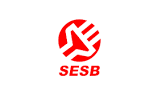Sabah Electricity Sdn Bhd

Total capacity of implemented projects
up to 10 MW
Countries of projects presence
1
Sabah Electricity Sdn Bhd (SESB) is a Malaysian company that is committed to developing renewable energy projects in the country. The company is a subsidiary of Tenaga Nasional Berhad (TNB), which is the largest electricity utility company in Malaysia. SESB is responsible for the generation, transmission, and distribution of electricity in the state of Sabah, which is located on the island of Borneo.
SESB has been actively involved in the development of renewable energy projects in Sabah since 2011. The company has identified biomass and waste as two key sectors for renewable energy development in the state. Biomass refers to organic materials that can be used to generate energy, such as agricultural waste, forestry residues, and municipal solid waste. Waste, on the other hand, refers to materials that are discarded by households, businesses, and industries.
Biomass
SESB has identified biomass as a key sector for renewable energy development in Sabah due to the abundance of biomass resources in the state. Sabah is a major producer of palm oil, which generates a significant amount of biomass waste in the form of empty fruit bunches (EFB), palm kernel shells (PKS), and mesocarp fiber (MF). In addition, Sabah has a large forestry industry, which generates a significant amount of wood waste and sawdust.
SESB has developed several biomass projects in Sabah, including the Tawau Biomass Power Plant and the Sandakan Biomass Power Plant. The Tawau Biomass Power Plant is located in the Tawau district of Sabah and has a capacity of 12 MW. The plant uses EFB and PKS as fuel to generate electricity. The Sandakan Biomass Power Plant is located in the Sandakan district of Sabah and has a capacity of 10 MW. The plant uses wood waste and sawdust as fuel to generate electricity.
SESB is also exploring the potential of other biomass resources in Sabah, such as rice husks, coconut shells, and sugar cane bagasse. The company is working with local farmers and businesses to develop a sustainable supply chain for these resources.
Waste
SESB has identified waste as another key sector for renewable energy development in Sabah. The state generates a significant amount of waste, including municipal solid waste, industrial waste, and construction waste. The disposal of this waste is a major environmental and health concern in Sabah.
SESB has developed several waste-to-energy projects in Sabah, including the Tawau Waste-to-Energy Plant and the Kota Kinabalu Waste-to-Energy Plant. The Tawau Waste-to-Energy Plant is located in the Tawau district of Sabah and has a capacity of 10 MW. The plant uses municipal solid waste as fuel to generate electricity. The Kota Kinabalu Waste-to-Energy Plant is located in the Kota Kinabalu district of Sabah and has a capacity of 5 MW. The plant uses industrial waste as fuel to generate electricity.
SESB is also exploring the potential of other waste resources in Sabah, such as construction waste and agricultural waste. The company is working with local authorities and businesses to develop a sustainable waste management system that maximizes the recovery of valuable resources and minimizes the environmental impact of waste disposal.
SESB's renewable energy projects have significant benefits for Sabah and Malaysia as a whole. The projects reduce the reliance on fossil fuels, which are a major contributor to climate change. They also create jobs and stimulate economic growth in the state. In addition, the projects improve the quality of life for local communities by reducing the environmental impact of waste disposal and improving air quality.
SESB is committed to continuing its development of renewable energy projects in Sabah and Malaysia. The company is exploring new technologies and partnerships to increase the efficiency and sustainability of its projects. SESB's vision is to become a leader in renewable energy development in Malaysia and contribute to a sustainable future for the country.